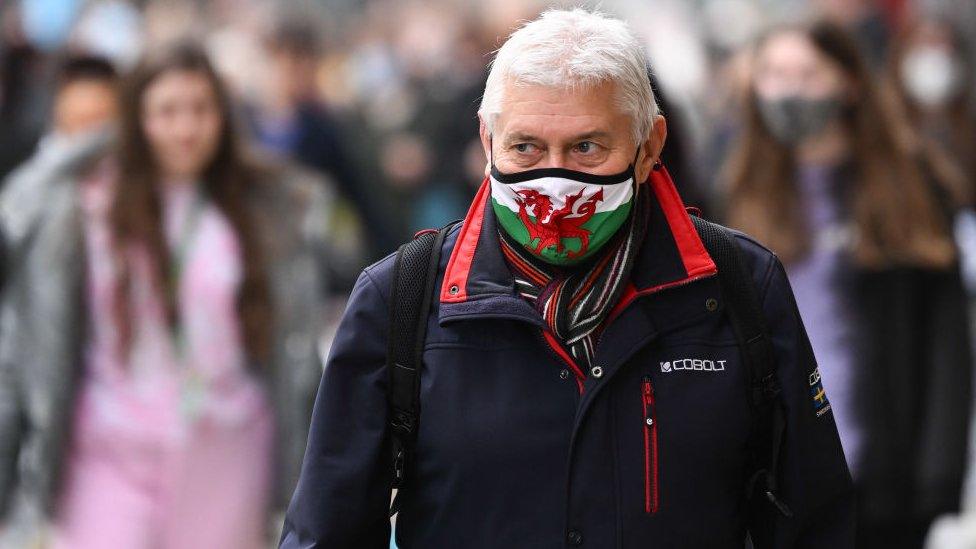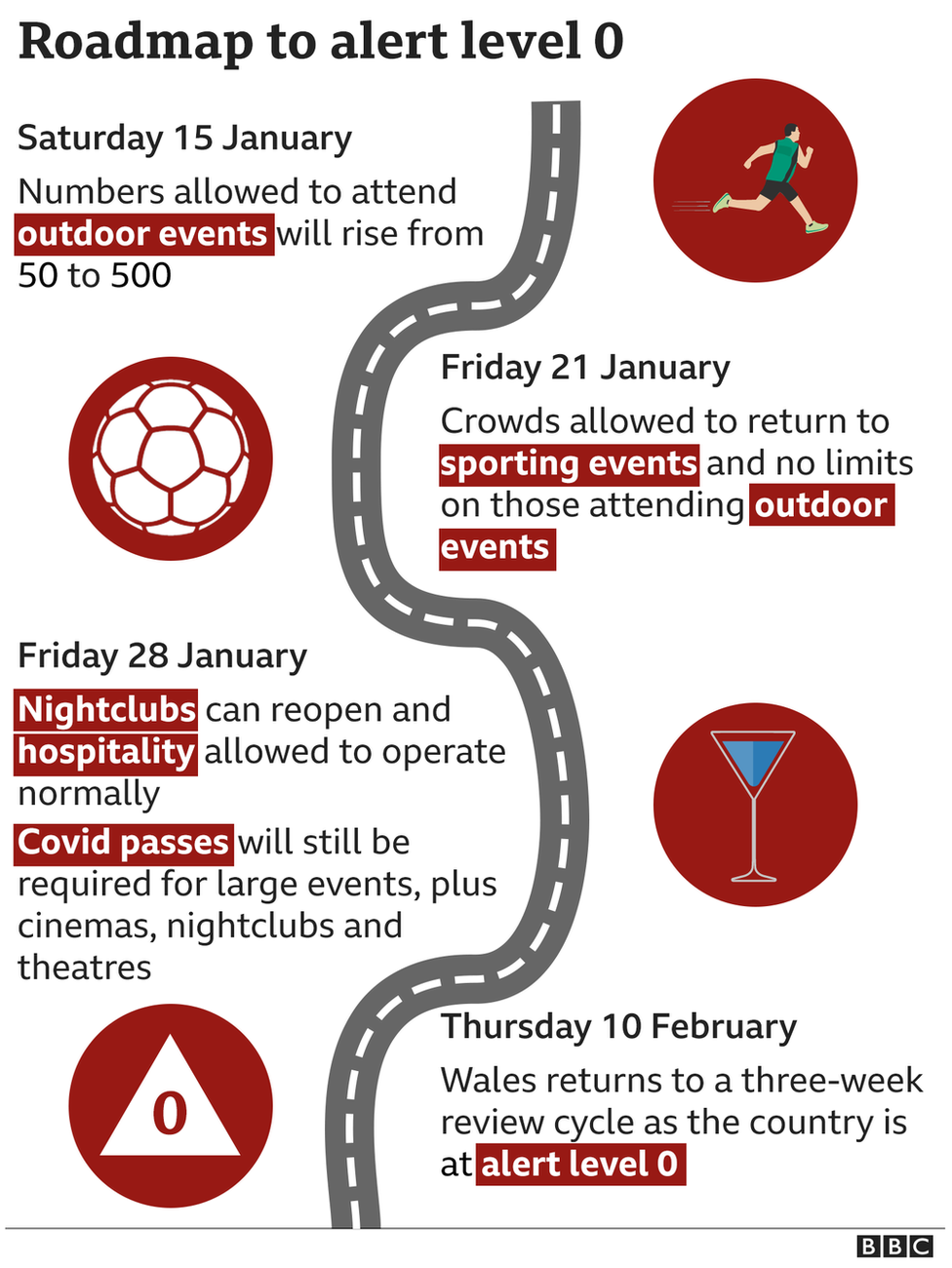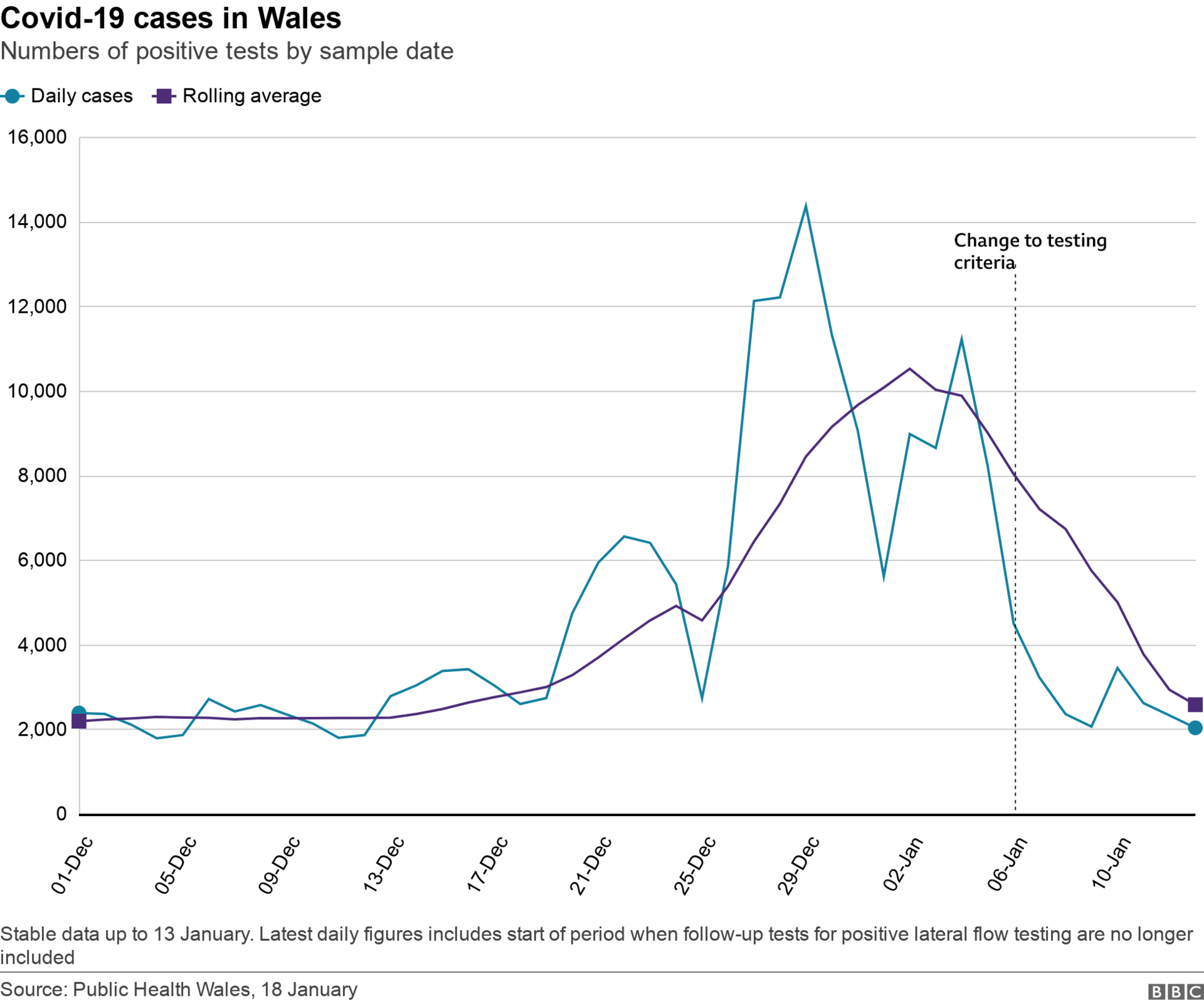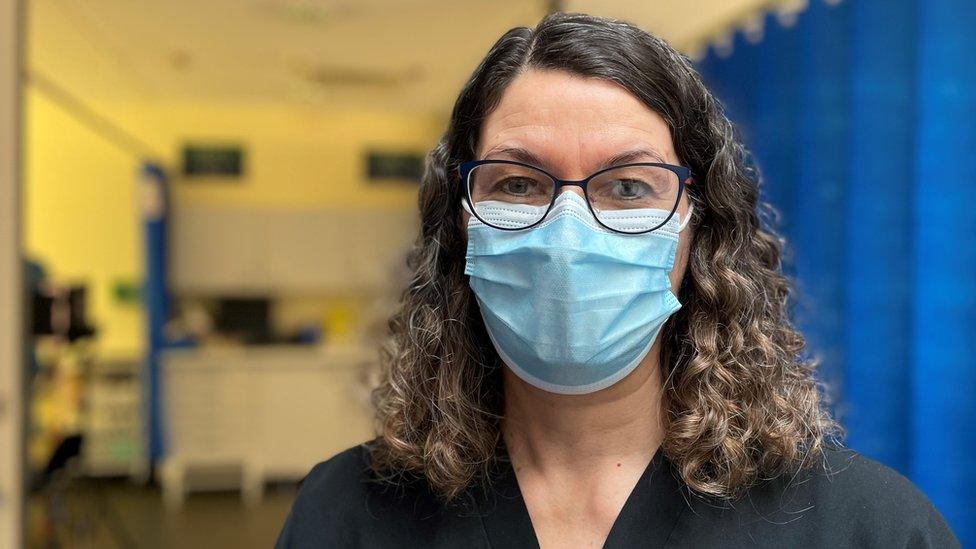Welsh Covid rules will not be relaxed quicker - minister
- Published

Wales will not lift Covid rules quicker than planned despite case rates being in rapid decline.
Eluned Morgan said the level of coronavirus remains "really high".
She also expressed concerns over signs "in other places" that there could be an increase in the number of cases in schools.
The Welsh government announced a three week roadmap for scrapping restrictions last Friday.
Last Saturday more people were allowed to attend outdoor events, while from Friday crowds can return to sporting fixtures.
From 28 January nightclubs can reopen and from 10 February Wales returns to a three-week review cycle.
Meanwhile the chief medical officer Frank Atherton has suggested UK officials may look at winding down mass testing in the summer.

Eluned Morgan was responding to Welsh Conservative demands for measures to be eased more quickly.
She accepted that case rates were plummeting but said they remained high at 572 per 100,000.
Speaking in the Senedd, the health minister said: "Now if we were in that situation in the middle of August, last year, we'd have been throwing our hands up in the air saying my God, these are high rates.
"So we've just got to just be aware that we're not out of the woods on this yet."
Wales' case rate has fallen 68% in a week - the lowest rate since mid-December.

The health minister said an "initial analysis" suggested there would be an additional 69,000 cases in Wales if the restrictions had not been introduced.
But Mr Morgan also acknowledged that the modelling upon which the Welsh government had relied was based on "imperfect data".
"We did peak earlier than expected. We didn't see as many hospitalizations as we had feared."
"So some of that modelling, perhaps, wasn't where we thought it might be, but in a good way."
She added that officials have not "quite seen what's happening" in schools yet.
"There are signs in some other places that we see an increase in the numbers of cases in our schools.
"The concern is whether that is then going to feed into the adult population and population of older people."

What was it like working in a hospital over Christmas?

Amanda Farrow said she had been 'quite scared' what could happen over Christmas
Within the space of two days Amanda Farrow watched colleagues drop like flies with Omicron.
"I was actually quite scared to be honest, about what would happen," said the emergency department consultant at the Royal Glamorgan Hospital in Llantrisant.
"If that rate had carried on it was a significant worry about staff in particular over Christmas and new year."
While some colleagues are still off, staffing levels are far healthier she said - but the pressures have not gone away.
She explained the challenge at the Royal Glamorgan is the same as so many other large hospitals.
A lack of social care in the community means the transfer of patients out of hospital is delayed - patients therefore wait longer in A&E for a bed to become free on wards, meaning ambulances have long waits to offload patients into the emergency department.
To free up space in the busy waiting room at A&E, the hospital has started a trial, where patients are triaged and those who could be treated at a minor injuries unit are then given an appointment at Ysbyty Cwm Rhondda, eight miles away.

Covid: 'Further curveball possible', says Vaughan Gething
Wales' chief medical officer has cautiously suggested a decision could be taken in the summer to scrap one of the key planks of the UK's pandemic response.
Dr Sir Frank Atherton said there would be no need to continue with mass testing once Covid becomes a more seasonal illness.
He said he is "sure there will be a stock taking in the summer because we can't go on with this volume of testing forever - why would we want to? We don't do that with flu."
"I think we just need to see in the summer months where we are up to in terms of what's happening globally around the development of potential new variants, where we are in the UK with the case rates and the harm that's coming from that.
"If we reach a point where there are no new variants coming which are a threat to us in the UK, and where we have low levels of infection in the UK and low levels of harm, that's the time to think about dismantling some of our infrastructure around testing."
But he gave a caveat that if Covid returned with a new variant "we may need to restart things".